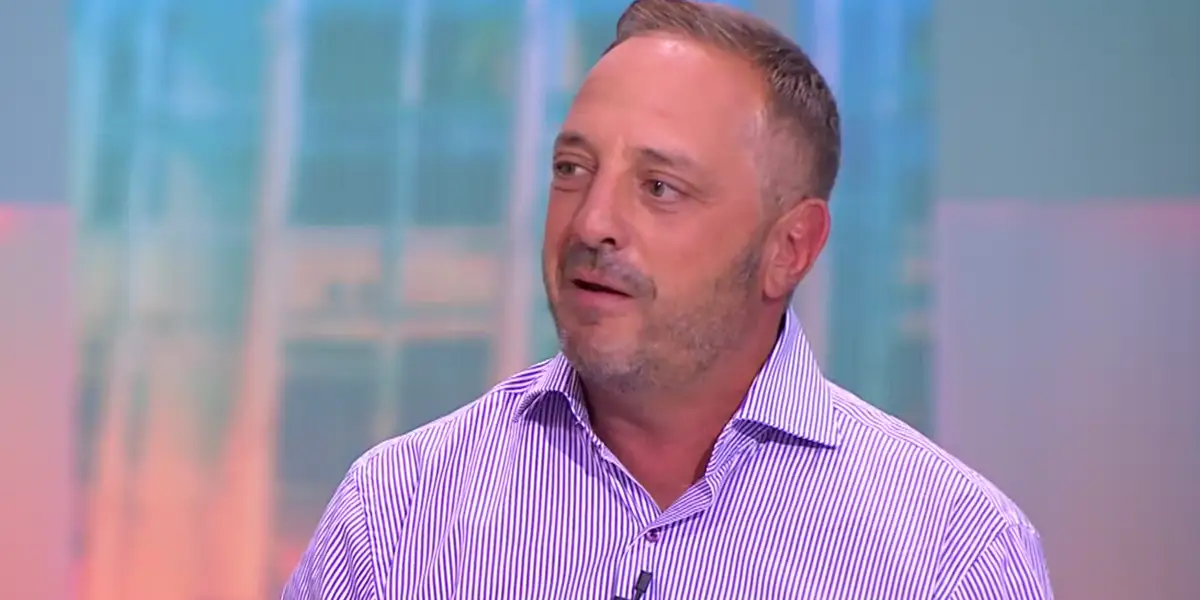Andrew Left was charged with fraud last week by the United States Securities and Exchange Commission (SEC) as the prominent short-seller was accused of engaging in a bait-and-switch scheme that produced gains of approximately $20 million.
Left, the founder of Citron Research, reportedly published false statements and made misleading claims about certain stocks that he supposedly recommended to the audience even though he was doing the exact opposite.
Who Is Andrew Left and What is Citron Research?
Andrew Left is a well-known figure in the financial industry and a constant guest on talk shows and popular financial media outlets like CNBC where he shares his insights about companies that his firm is researching.
He often criticizes some firms for their practices or believes them to be overvalued from a fundamental standpoint. Short sellers analyze businesses and their financials to identify potential opportunities to cash on a future drop in the price of their stock. They often release devastatingly critical reports on the companies they are shorting. If all of the information is true, this isn’t technically illegal. But when they lie or deliberately mislead, they are likely committing securities fraud.
Aside from his TV appearances, Left also runs the prominent social media account of Citron Research, which boasts over 350,000 followers to date. Left typically publishes reports and comments about companies that his company has flagged for questionable practices. This has made him a rather controversial figure in the stock market.
Left Reportedly Fooled Investors by Taking the Opposite Side of the Bet
Funny Muddy Waters comment. I Spent all of 2020 watching GSX going higher asking "who is buying this shit??" Who does a short seller complain to when he was defrauded? Justice served. https://t.co/8Cbe0BXp4v
— Citron Research (@CitronResearch) July 10, 2024
The SEC alleges that Left used Citron and his notoriety to make public recommendations that involved telling people to either buy or short certain stocks on 26 different occasions. They were all sold as positions that Citron had already taken.
However, the SEC found that Citron invested in 23 companies where they quickly flipped the direction of their position – shorting instead of buying or buying instead of shorting – once they saw that their public recommendation started to move the needle in the stock market. Their intention, the SEC claims, was to capitalize on this movement by taking the other side of the bet without informing investors about it.
According to Kate Zoladz, Director of the SEC’s Los Angeles Regional Office, said: “Andrew Left took advantage of his readers. He built their trust and induced them to trade on false pretenses so that he could quickly reverse direction and profit from the price moves following his reports.”
Among the many incidences where the SEC identified this pattern, the complaint mentions one where Left told his followers to stay long on a stock until the price hit $65 even though his firm started to sell once the price hit $28.
Moreover, the complaint also says that Citron falsely claims that it does not receive compensation for its independent research. However, they entered multiple agreements with hedge funds where they were paid for issuing these reports.
The intentions behind all of these actions are clear to the SEC – profiting from manipulating the market and failing to provide his investors and followers with adequate disclosures about his actions, interests, and connections.
The DOJ Opened a Criminal Investigation Against Left
The Department of Justice (DOJ) has joined the legal effort and is bringing up criminal charges against Andrew Left. CNBC reported that he surrendered to the court yesterday and will be facing trial in the US District Court of Los Angeles before Judge Rozella A. Oliver.
Left is facing 19 criminal counts that could result in prison time if he is found guilty. The public indictment claims that he took contrary trading positions compared to those he publicly promoted and made false claims during his TV appearances.
The DOJ case documents state: “Left knowingly exploited his ability to move stock prices by targeting stocks popular with retail investors and posting recommendations on social media to manipulate the market and make fast, easy money.”
According to the prosecutor’s research, Left’s comments about a stock could result in movements of around 12%. This fluctuation allowed Citron to profit from taking the opposite side of the transaction that Left recommended to the audience.
Notable instances where this happened include investments in the stock of Nvidia (NVDA), Tesla (TSLA), and GameStop (GME). In the latter case, Left was a notable critic of the whole meme stock craze of 2021 and constantly blasted retail investors for taking long positions on a company with poor fundamentals.
Behind the curtains, he was reportedly buying the stock and cashing out thousands of dollars as a result of his contrarian bets. In the case of Tesla, the complaint report that Left and his firm profited nearly $100,000 as a result of this scheme.
Left’s Legal Defense Says that the Case is “Defective”

Left’s attorney, James Spertus claims that the case is “misguided” and that Left has no legal duty to share what his trading plans are with the public. He says that his client has been accurate with the positions he has claimed to have taken and went on to categorize the SEC and DOJ’s cases as “defective”.
Also read: Did Roaring Kitty Sell His $GME for $CHWY? Analysts Weigh In
Spertus said that Left is not willing to take a plea deal with either of these agencies and that his track record as a stock analyst has been positive, emphasizing that many of his recommendations produced the expected result.
Implications for Short Sellers and the Financial Market
This case raises significant questions about the role of short sellers in the financial markets and the limits of free speech in financial commentary. Short sellers like Left often publish research criticizing companies that they believe to be overvalued or that have engaged in unlawful or questionable practices. Their contribution is important to keep market participants in check.
However, the government argues that Left crossed a line by allegedly lying to the public about his own trades.
The outcome of this case could have far-reaching effects on how short sellers operate. If Left is found guilty, it might prompt other investors who also engage in short-selling to be more cautious about what they share about companies. This could potentially change how information flows in the stock market and impact market efficiency.
Spertus believes that whether Left is convicted or acquitted, the case will have a chilling effect on the entire practice. He warned: “People will stop sharing their research with the market. It’s really bad for the financial markets to have a prosecution like this when the government agrees that the public statements were truthful.”
Also read: What is the Next Gamestop Stock? Top 10 Contenders
Meanwhile, the relationship between short sellers and hedge funds has been scrutinized since the 2021 meme stock saga. Left was a key figure in this whole situation as he had been shorting GameStop before retail investors piled on.
Various hedge funds were also shorting GME stock alongside Citron including Melvin Capital. The latter suffered heavy losses for its exposure to this bet. Other funds may have been relying on the recommendations made by Citron to pursue this strategy and were blown up when the price of GME was propelled by the actions of retail investors.
As Left’s case unfolds, it will likely have profound implications for the financial industry, particularly regarding the balance between market commentary and market manipulation.
The SEC reminded investors to be skeptical and never make investment decisions based solely on information they get from social media or TV shows. This case serves as a reminder of the potential risks associated with following investment advice from public figures – even from those with established reputations in the financial world.
